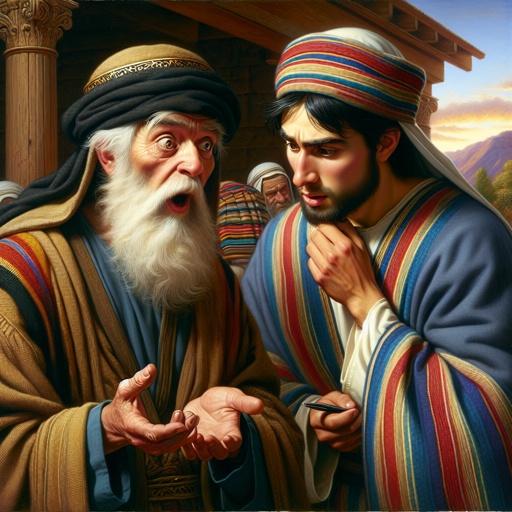THE SEED
“And he said unto him, Son, thou art ever with me, and all that I have is thine.” – Luke 15:31 (KJV)
In the prodigal son’s story, the father’s words to the elder son remind us of God’s generous and unfailing love toward His children. While the elder son struggled with resentment, feeling overlooked because of his faithfulness, the father reassured him that everything he had always belonged to him. This is a picture of God’s relationship with us—He is ever-present, and His blessings are always available to those who remain in His presence. Often, we may feel unnoticed or unappreciated in our walk with God, especially when others receive special attention or grace. Yet, God’s assurance to us is the same: all that He has is ours. We are never lacking when we abide in Him. His love, peace, and provision are continually ours, not because of what we do, but because of who we are in Him. Therefore beloved of Christ, let us embrace the fullness of God’s blessings and live with the confidence that, as His children, we are never forsaken or forgotten.
BIBLE READING: Luke 15:25-32 (KJV)
PRAYER: Father, thank You for the assurance that all You have is mine. Help me to rest in Your love and to trust that I lack nothing when I remain in Your presence. Amen.
GBOGBO OHUN TÍ MO NÍ JẸ́ TÌRẸ
IRUGBIN NAA
“Nígbà náà ni baba náà wí fún un pé, ‘Ọmọ, ìwọ wà pẹ̀lú mi nígbà gbogbo, gbogbo ohun tí mo ní sì jẹ́ tìrẹ. “ Lúùkù 15:31 (KJV)
Nínú ìtàn ọmọ onínàákúnàá, ọ̀rọ̀ tí bàbá náà sọ fún ọmọkùnrin àgbà rán wa létí ìfẹ́ tí Ọlọ́run ní sí àwọn ọmọ Rẹ̀ tí kì í kùnà. Bó tilẹ̀ jẹ́ pé inú ń bí ọmọ tó dàgbà jù lọ náà, tó sì ń rò pé àwọn èèyàn ti pa òun tì nítorí pé òun jẹ́ olóòótọ́, bàbá náà mú un dá a lójú pé gbogbo ohun tóun ní ló jẹ́ tirẹ̀ látìgbà tó ti bí i. Eyi jẹ aworan ti ibasepọ Ọlọrun pẹlu wa. O wa nigbagbogbo, ati awọn ibukun Rẹ wa nigbagbogbo fun awọn ti o duro niwaju Rẹ. Lọ́pọ̀ ìgbà, ó lè máa ṣe wá bíi pé àwọn èèyàn ò kíyè sí wa tàbí pé wọn ò mọyì wa bá a ṣe ń bá Ọlọ́run rìn, àgàgà nígbà táwọn kan bá ń gba àfiyèsí àrà ọ̀tọ̀ tàbí tí wọ́n ń fi ojú rere hàn sí wa. Síbẹ̀, ohun kan náà ni Ọlọ́run fi dá wa lójú pé: Gbogbo ohun tó ní ló jẹ́ tiwa. A ò ní ṣaláìní ohunkóhun tá a bá dúró nínú rẹ̀. Ìfẹ́, àlàáfíà, àti ìpèsè rẹ̀ jẹ́ tiwa nígbà gbogbo, kì í ṣe nítorí ohun tá a ṣe, bí kò ṣe nítorí irú ẹni tá a jẹ́ nínú Rẹ̀. Nítorí náà, ẹ̀yin olùfẹ́ Kristi, ẹ jẹ́ kí a gba ìkún ìbùkún Ọlọ́run, kí a sì gbé pẹ̀lú ìdánilójú pé, gẹ́gẹ́ bí àwọn ọmọ Rẹ̀, a kò fi wá sílẹ̀ tàbí gbàgbé wa.
BIBELI KIKA: Lúùkù 15:25-32.
ADURA: Baba, o ṣeun fún ìdánilójú náà pé gbogbo ohun tí o ní ni tèmi. Ràn mí lọ́wọ́ láti sinmi nínú ìfẹ́ Rẹ àti láti gbẹ́kẹ̀lé pé kò sí ohun tí mo ṣaláìní nígbà tí mo bá wà níwájú Rẹ. Àmín.
